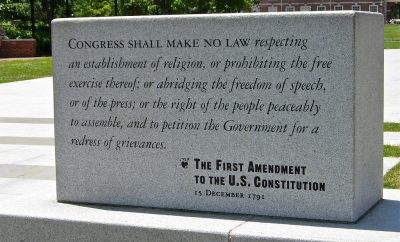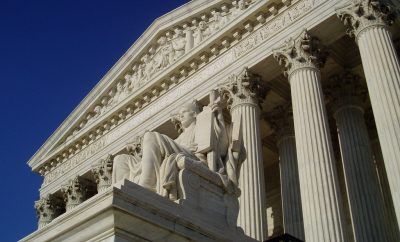 "Texas Flag" Courtesy of [Ray Bodden via Flickr]
"Texas Flag" Courtesy of [Ray Bodden via Flickr]
Law
Texas Voter ID Law Reviewed by Federal Appeals Court
A Texas law that critics see as a discriminatory measure against minorities and supporters see as a bulwark against voter fraud was reviewed by a federal appeals court on Tuesday. A decision to uphold, strike down, or tweak the law is expected by July at the latest.
The U.S. Court of Appeals for the 5th Circuit heard arguments Tuesday morning in New Orleans. Texas Solicitor General Scott A. Keller testified in favor of the law while Janai Nelson of the NAACP Legal Defense and Educational Fund argued against it.
SB 14–the law in question–was passed in 2011 with a signature from then-Texas Governor Rick Perry. A number of states have enacted more stringent voting laws since the last presidential election in 2008, with SB 14 being the toughest in the nation. It requires one of six forms of identification–driver’s license, personal ID, military ID, an official birth certificate, a passport, or a gun license–that some civil rights groups and Democrats see as purposefully limiting the rights of black, Hispanic and low income voters. College IDs do not suffice.
The appeals court is under pressure by the U.S. Supreme Court to finalize a decision by July, as it’s one of a number of such cases that the high court is seemingly hopeful will be settled by the November election.
“If, on or before July 20, 2016, the Court of Appeals has neither issued an opinion on the merits of the case nor issued an order vacating or modifying the current stay order, an aggrieved party may seek interim relief from this court by filing an appropriate application,” the Supreme Court said in an order in April.
In the early stages of the appeal process, there seems to be little indication SB 14 will be repealed or significantly amended, though the judges did raise the question of why the law did not include any provisions that would act as a plan B in case a voter could not procure any of the six identifying documents.
In 2012, a federal court in Washington struck down the law, one of three courts to do so, though the Texas legislature has refused to act. Judge David S. Tatel wrote the opinion at the time: “That law will almost certainly have retrogressive effect: it imposes strict, unforgiving burdens on the poor, and racial minorities in Texas are disproportionately likely to live in poverty.”
How the appeals court will act on this issue could affect other fights involving voting rights throughout the country. With the November election fast approaching, this is an important case for voters in Texas and beyond.








Comments